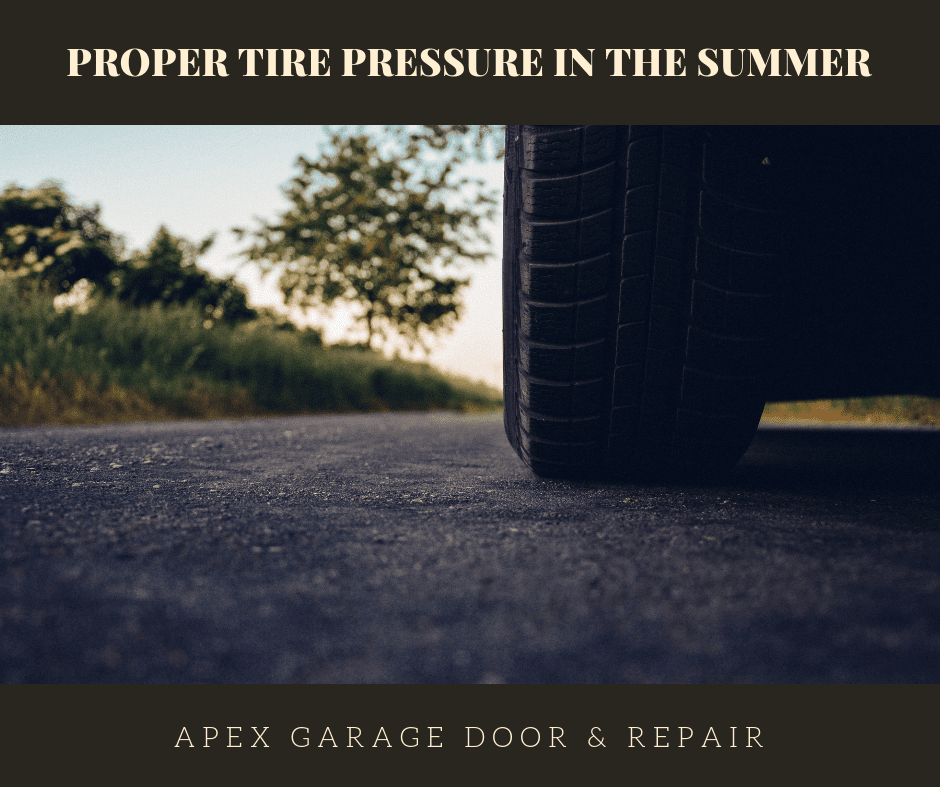Arizona is starting to heat up, with triple-digit temperatures anticipated for the Valley in the days to come, according to meteorologists. These temperatures can stress vehicles, especially those ten years or older, and potentially cause a breakdown. Talk about throwing a monkey wrench into your plans to adventure down the open road.
Scorching hot temperatures can cause weak/dead batteries, struggling/broken air conditioners, and under-inflated tires and sudden blowouts as well as other potential problems.
Arizona’s roads and highways can be much hotter than the ambient air temperature. As you drive during Arizona’s summer (May through September), your tires will expand due to this heat and friction, increasing the potential for over-inflation.
Whether under- or over-inflation happens in just one or all four tires, it threatens the proper and safe performance of your vehicle, along with the tire’s longevity. “High heat can [also] lead to loss of tread segments or even blowouts,” according to AAA. Lower fuel economy is another real problem that results from improperly inflated tires.
Maintaining the correct tire pressure will ensure responsive handling and braking, improved fuel efficiency, and a smoother ride as you venture to area lakes and other popular recreational sites this summer. Continue reading to learn where to find your vehicle’s PSI, how to check tire pressure, and whether to convert to nitrogen.
What’s Your PSI?
Generally, vehicle manufacturers include this information in two places: your vehicle’s owner manual and the tire specification decal on the driver-side doorframe. Never refer to the pressure molded into the tire sidewall. Other places to look for tire inflation information include the glove box door, fuel filler cap, or trunk lid (these places are more common in pre-2003 model vehicles).
Checking Tire Pressure
Once you have obtained the correct PSI number for your specific vehicle, grab a dial or digital tire pressure gauge, adjusting tire pressure up or down as needed. The National Highway Traffic Safety Administration recommends checking tire pressure once a month, at minimum, preferably before the car’s been driven or at least three hours afterwards. This will provide you with the most accurate reading.
Step One: Remove the tire’s valve cap and press the gauge firmly over the valve step until you no longer hear a hissing sound. Write down the reading and repeat this process for on tires including the spare.
Step Two: Compare your tire’s current pressure to that recommended by the manufacturer.
Step Three: Use an air compressor, available at most any retailer and online, to refill any tires with low pressure. Have a pro let air out, though, if they’re over-inflated.
Step Four: Once you’ve confirmed the correct tire pressure, replace valve cap. Recheck tire pressure monthly and before any road trips.
Pressed for time? Most tire shops around the valley offer free tire pressure checks. Equally important, they often also check remaining tread life, making recommendations as needed. The tire is okay if the remaining tread measures above 4/32”; anything less and the tires must be immediately replaced. You’ll want to have your tires professionally rotated according to manufacture recommendations as well.
Air vs. Nitrogen in Tires
Historically, tires have been inflated with air and according to Consumer Reports, most people are better off sticking with the original option. While there are benefits to nitrogen, they are minimal compared to the cost of conversion, and the convenience lost – not many tire shops have nitrogen. If you plan on converting your tires to nitrogen, make sure the retailer removes all the original air, as this will ensure no impurities remain from the regular air. You’ll also want to refill the tires with nitrogen as needed.
Have a safe, fun-filled summer! Apex Garage Door and Repair is a locally owned and operated garage door service company with a team of experienced professionals serving residential and commercial clients in Phoenix and the greater metro area. We specialize in the installation, maintenance, and repair of today’s most popular garage door and garage door opener brands. Contact us today at (480) 460-1199 for more information or to schedule an appointment.


0 Comments